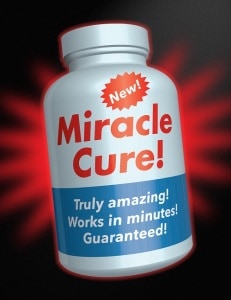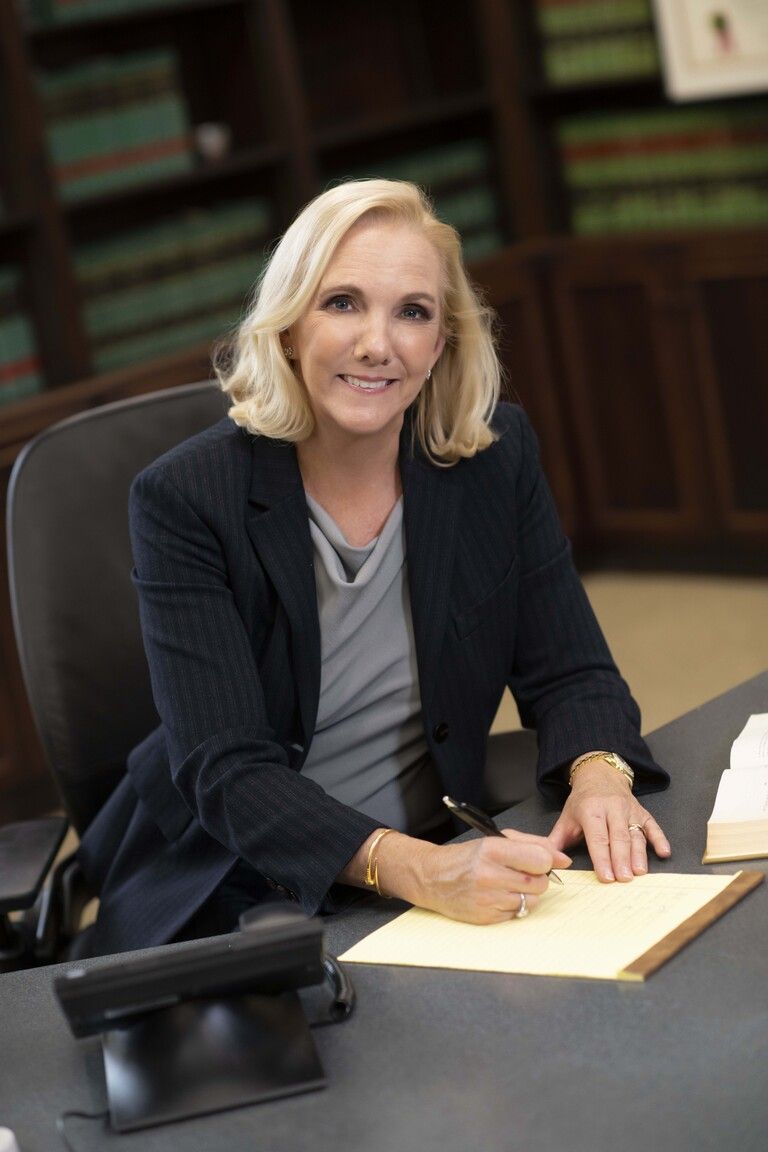Do you use alternative medicine instead of mainstream methods of medicine, and how certain are you about its effectiveness on your overall health? Alternatives to traditional medicine – known broadly by such terms as alternative medicine, holistic medicine, naturopathy, homeopathy, and natural medicine – have in recent years become more popular across all segments of
the population. However, alternative medicine can be dangerous, and using common sense will go a long way to protecting yourself from unscrupulous alternative medicine manufacturers.
The attraction of “alternative” medicine
Pharmaceutical companies bear some of the blame in driving people toward alternative medicine. It seems that any pharmaceutical advertising that we see on television or read in magazines also comes with a lengthy disclaimer. You know these disclaimers: “May cause dry mouth, constipation, seizures, increased risk of stroke…” Often it seems that the cure is worse than the disease, and while legally the pharmaceutical manufacturers are required to include these disclaimers in their advertising, a laundry list of possible side effects may make people reluctant to try FDA-approved medications. Additionally, the cost of some pharmaceuticals is beyond what many patients are willing or able to pay, and this may cause some to seek different treatment options. These factors may mean that people are more willing to try “natural” remedies as a part of their treatment. Unfortunately, a “natural” remedy may not help, and may in fact worsen the health issue.
Not vetted by the FDA
While there’s certainly nothing wrong with chicken soup when you have a cold, alternative treatments for many illnesses and diseases can actually do more harm than good. When you choose to forego conventional medicine in favor of alternative therapies, there is a possibility that your illness will worsen. Examples of alternative medicine include megadoses of vitamins, herbal preparations, dietary supplements, herbal teas, use of massage or manual therapies, magnets, nutritional extremes, and spiritual healing. If you examine the labels on some of the various “remedies” and supplements used in alternative medicine, you will see a disclaimer: “This statement has not been evaluated by the FDA. This product is not intended to diagnose, treat, cure or prevent any disease.” Regardless if the manufacturer makes the claim that a supplement will treat or cure a disease, they must legally include this disclaimer on their label, as the FDA does not evaluate such claims. Only established pharmaceuticals can legally make the claim that they are intended to diagnose, treat, cure, or prevent disease, and only after a thorough process of investigation and testing by the FDA.
A brief history of alternative medicine
Alternative medicine, ironically enough, was mainstream medicine once upon a time. Ancient societies relied on shamans and healers to treat their illnesses and ailments, and many of the therapies used in alternative medicine today stem from those dark ages. However, as civilization became more sophisticated, and as science developed, many of these treatments were proven to be harmful or ineffective. Modern medicine developed as scientific advances were made, and continues to develop today, while the methods of the old shamans and healers continue to fade into the annals of history.
What about “integrated” or “complementary” medicine?
Some physicians have expressed a willingness to use alternative treatments alongside the more traditional forms of medicine in use today. These alternative treatments have been proven scientifically to perform just as well as today’s pharmaceuticals, without some of the side effects found with medicines currently in use. Physicians who adapt some forms of alternative medicine into their practice tend to promote this type of treatment as “integrated” or “complementary” medicine, as it supplements the traditional form of medicine in use today. For example, a doctor may determine that a supplement of Vitamin B-12 would be beneficial for a patient undergoing treatment for anemia, and may suggest a certain dosage of this vitamin in addition to the course of treatment the patient is undergoing. The supplemental B-12 would complement the treatment rather than presume to solve the issue as a stand-alone treatment. The difference here is that the supplemental medical treatment is directed by a licensed, board-certified physician whose primary oath to his or her profession is, “first, do no harm.”
If it looks like a duck…
You may be wondering why aromatherapy or oil-pulling or reflexology seems to work for some people and not others. The answer is best left to the scientific community, because research is ongoing in order to prove or discredit many alternative medicine treatments. So far, no one has cured cancer by using herbs and megadose vitamins and it’s unlikely they will. An editorial in the Journal of American Medical Association in 1998 spells out the medical community’s feelings on the subject of alternative medicine very well: “There is no alternative medicine. There is only scientifically proven, evidence-based medicine supported by solid data or unproven medicine, for which scientific evidence is lacking.” Until the scientific evidence proves the effectiveness of alternative medicine treatments, you would be wise to approach this subject with caution.
Please understand that there are no national licensing standards for alternative medicine practitioners, and the requirements for credentials or certifications vary from state to state. Government regulations, licenses, and certificates do not guarantee safe, effective treatment. Also, be aware that some individuals who offer alternative medicine treatments are not licensed in any way to provide medical advice. Sometimes what appears to be quackery is exactly that.
Abandoning contemporary medicine in favor of alternative methods can be dangerous and harmful to your long-term health. When it comes to alternative medicine, thoroughly investigate the claims being made and draw your own conclusions. Talk with your doctor. If you choose to use alternative therapies, please involve all of your healthcare professionals, so that they may have a complete picture of the methods being used to maintain or improve your overall health. Finally, if your health has been damaged by alternative medicine, speaking with an experienced attorney can help you to determine whether you have legal recourse.


